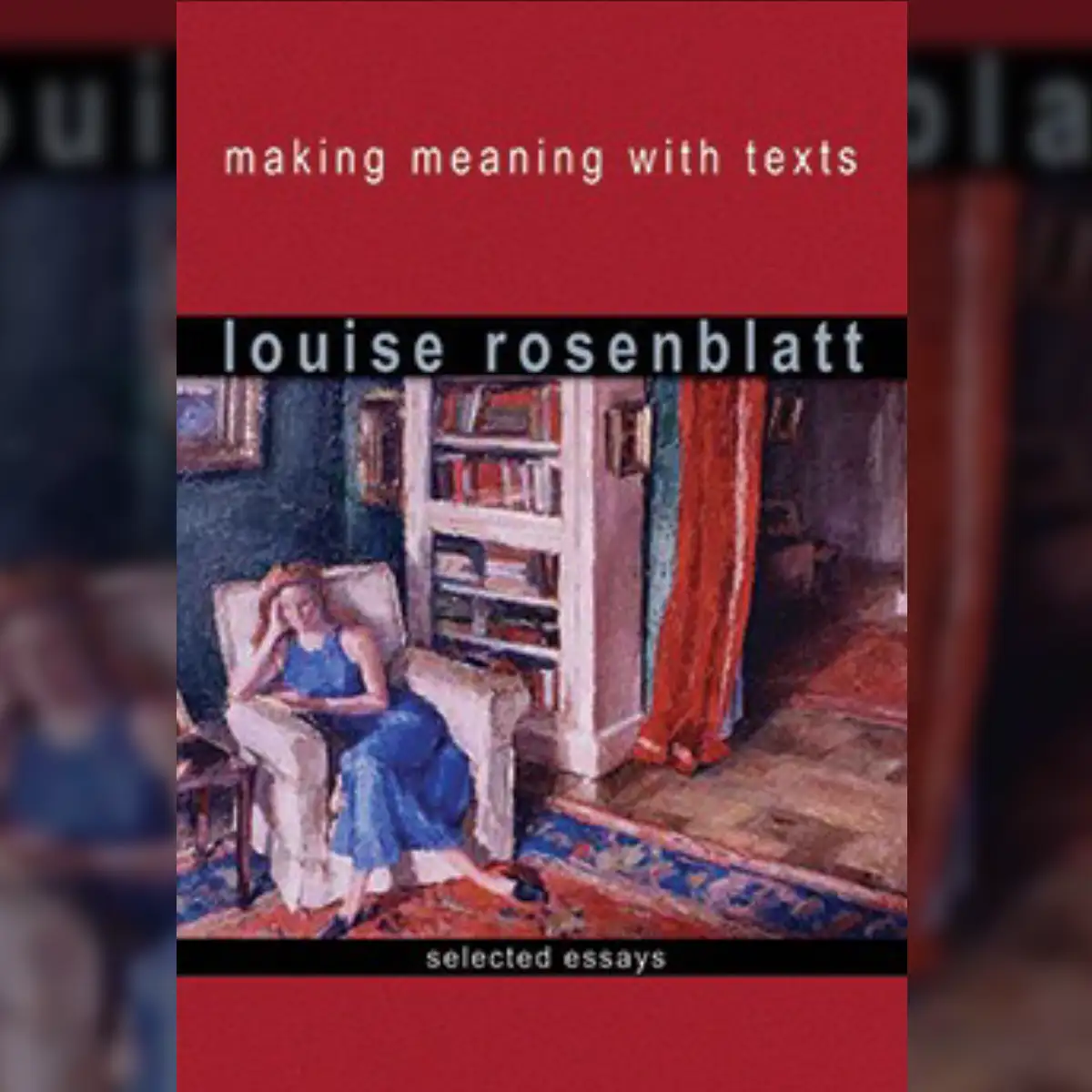Louise Rosenblatt zum Geburtstag (23.8.1904 – 8.2.2005)
Warum arbeiten die Lehrpersonen der Jean-Jaurès Schule mit Bilderbüchern und ihren Autoren, um die Sprachentwicklung der Kinder voranzutreiben?
Welcher Mehrwert entsteht durch den Einsatz authentischer Bilder und Texte in den Prozessen des multilingualen Lesens und Schreibens für alle Beteiligten?
Louise Rosenblatt ermöglicht dem Alten in Anlehnung an die Theorie der Transaktion einige Erläuterungen.
Louise Rosenblatt betont die Wichtigkeit unserer Emotionen beim Erfassen eines Lernobjekts sowie beim Einstieg in jeglichen Lernprozess. In
(1978) The Reader, the Text, the Poem: The Transactional Theory of the Literary Work. Carbondale and Edwardsville, Southern Illinois University Press. schreibt Rosenblatt:
What an individual perceives in a given situation will be profoundly influenced by «interest, expectations, anxieties, and other factors based on past experience (…) the perceiver sees even a structured object or environment in the way that his past experience and habits determine. In short, what is perceived involves both the perceiver’s contribution and the stimulus.» (p. 19) und weiter:
«(…) the reader must bring more than a literal understanding of the individual words. He must bring a whole body of cultural assumptions, practical knowledge, awareness of literary conventions, readiness to think and feel. These provide the basis for weaving a meaningful structure around the clues offered by the verbal symbols. » (p. 88)
Auf dieser Basis allein kann dann die Form eines schriftlichen, bildlichen, symbolischen Textes erschlossen werden:
«Form, it is claimed, is the mark of the work of art, and form is to be found in the text, in its arrangement of sounds, its syntax, its figures of speech, its configurations of ideas, in short, in the way the words have been patterned.» (p. 89)
Bilderbücher bilden bedeutungsschwangere Lernumwelten, in denen bedeutsame und sinnvolle Sprache im Rahmen der nicht nur sprachlichen Vorerfahrungen der Kinder artikuliert, objektiviert, kritisiert, gesprochen und geschrieben werden kann.
IN (1988) Writing and Reading: The Transactional Theory, Technical Report No. 13, National Center for the Study of Writing. Berkeley, University of California. beschreibt Louise Rosenblatt das so:
«(…) language is always internalized by an individual human being in transaction with a particular environment. (…) The individual’s share in the language (…) is that part, or set of features, of the public system that has been internalized in the individual’s experiences with words in life situations. (…) We make meaning, we make sense of a new situation or transaction, by applying, reorganizing, revising, or extending elements drawn from, selected from, our personal linguistic-experiential reservoir.» (p. 3)
Mündliche und schriftliche Sprachentwicklung geschieht idealerweise auf der Basis von eigenen, dynamischen Willensentscheidungen, welche unseren Lebensweg begleiten. Louise Rosenblatt bemüht William James:
«William James tells us that we are constantly engaged in a „choosing activity“, which
he termed „selective attention“ (William James, 1890, The Principles of Psychology, Vol. 1, p. 284, New York: Henry Holt). (…) The transactional concept will prevent our falling into the error of envisaging attention as a mechanical choosing among an array of fixed entities, rather than as a dynamic centering on areas or aspects of the contents of consciousness. (…) From the very beginning, and often even before, some expectation, some tentative feeling or principle or purpose, no matter how vague at first, guides selection and synthesis.» (pp. 3, 4)
Kinder planen also bestenfalls selbst die nächsten sprachlichen Entwicklungsschritte im Rahmen einer institutionalisierten Pädagogik, welche den Rahmen für mündliche und schriftliche Sprachentwicklung steckt: so zum Beispiel im Schreib- und Sprechatelier im weitesten Sinne, welches viel Raum und Zeit für immer neue Wahlmöglichkeiten bietet:
«(…) human activity is always in transaction, in a reciprocal relationship, with an environment, a context, a total situation. Teachers and pupils in the classroom are transacting with one another and the school environment; their context broadens to include the whole institutional, social, and cultural environment. All of these elements enter into the transaction and cannot ultimately be ignored in thinking about education and especially the „literacy problem“. (…) the reading and writing processes (…) can be inhibited or fostered by contextual and personal elements entering into the transaction that, for example, affect the individual’s attitude toward the self, toward the reading or writing activity, or toward the purpose for which it is being carried on.» (p. 15)
Erfahrungs- und Anschauungswelten der Kinder werden somit die entscheidenden Faktoren für sinnvollen Sprachunterricht, der wohl kaum mit standardisierten Lernmaterialien und standardisierten Testszenarien zu etablieren ist.
Transaktionelles Erleben und Lernen zum Beispiel mit Bilderbüchern wird zum unbestimmbaren Motor der kindlichen Sprachentwicklung im mündlichen und schriftlichen Bereich:
«(…) the linguistic transaction should be studied above all as a dynamic phenomenon happening in a particular context, as part of the ongoing life of the individual in a particular educational, social, and cultural environment. We need to learn how the student’s attitudes and self-understandings are formed and enter into the reading/writing event.» (p. 15, 17)
Der Alte findet, es ist höchste Zeit, Louise Rosenblatt wiederzuentdecken.



0 Kommentare